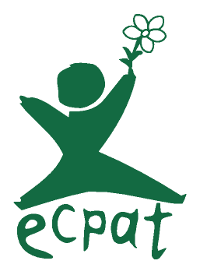Save the date
On 17 September, ECPAT Belgium and Defence for Children International Belgium invite you to a training course to better understand and respond to the sexual exploitation of children. Click here for practical details.
This author has not written his bio yet.
But we are proud to say that ECPAT Belgique contributed 605 entries already.
On 17 September, ECPAT Belgium and Defence for Children International Belgium invite you to a training course to better understand and respond to the sexual exploitation of children. Click here for practical details.
“There is an urgent need for a national action plan to fight the sexual exploitation of children”. Ariane Couvreur, project manager at ECPAT Belgium, raises concerns in an interview with Sud Presse.
With all the necessary sanitary measures, ECPAT Belgium provided a training course on online safety at PAG-ASA, a center for victims of human trafficking. A big thank you to the participants for their motivation and enthusiasm!
Today we celebrate ECPAT’s 30th anniversary. What started as a campaign initiated by a small group of people to tackle child prostitution in Asia is now the world’s largest network dedicated to ending all forms of child sexual exploitation, including 118 member organizations in 102 countries. This is an opportunity to take some time to […]
The COVID-19 pandemic has impacted the world in an unprecedented way. If the world is currently slowing down, sexual predators never stop and are continuously adapting. Many factors induced by this sanitary crisis facilitate the perpetuation of violence, especially against children. What is the impact of COVID-19 on children? What can we do to protect […]
2019 has been a busy year for ECPAT Belgium: numerous training sessions, publication of research and opinion articles, strengthening our network and partnerships… Find out more about ECPAT Belgium’s actions and impact in our new activity report.
The ECPAT network has published a new study outlining quality standards for reporting lines for child sexual exploitation in travel and tourism. Since 2014, the platform www.dontlookaway.report has been increasingly successful. It now includes reporting lines from more than 20 countries around the world. In order for these websites to function and follow up complaints […]
On March 2nd, representatives from governments, police, the travel and tourism industry as well as the civil society from 7 European countries came together to celebrate the 10th anniversary of the Don’t Look Away Campaign during an international Expert Meeting of the EU-Project “Alert Actors Report” that took place in Berlin (Germany) to end sexual […]
12 days of exhibition, 3 cities, 1250 people sensitized … and a team of 14 fantastic volunteers. This is the result of ECPAT Belgium’s presence at the tourism fairs in Antwerp (23-26 January), Brussels (6-9 February) and Liège (13-16 February). At these events, ECPAT Belgium had a stand to inform travellers about the possibility to […]
Our Website uses cookies to improve your experience. Please visit our Legal notice page for more information about cookies and how we use them.
Close